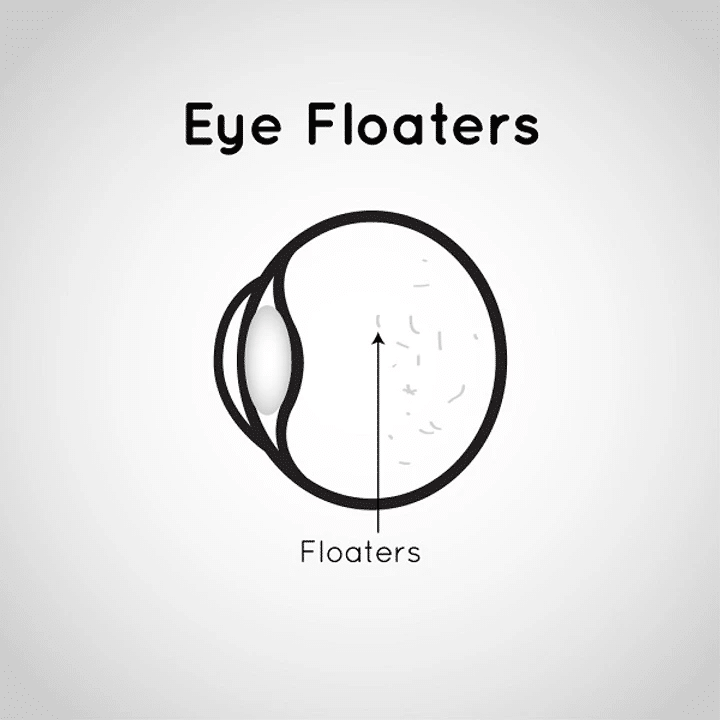Why do I have floaters in my vision?
Floaters are the tiny specks, lines, rings or flashes of light that appear in your vision every so often. Fortunately, most of the time they are absolutely harmless and require no medical intervention.
The following article provides a little more information about these pesky floaters and what, if anything, you should do about them.

What causes floaters?
Floaters usually appear when small parts of the eye’s vitreous break lose in the eye’s inner back portion. These specks of undissolved vitreous material float around the gel-like vitreous, casting shadows on the retina and disturbing a person’s vision.
Older individuals tend to complain of floaters more than younger ones as the vitreous tend to dissolve and liquefy as we age.
While most floaters are not symptomatic of any serious eye conditions, PVDs can be caused by certain conditions your ophthalmologist may need to investigate further, including:
Nearsightedness
Also known as short-sightedness or myopia, this condition can vary in severity from person to person and causes distant objects to appear blurry, while closer objects appear normal. This is a very treatable condition, often requiring the use of corrective glasses or contact lenses.
CMV retinitis
Cytomegalovirus retinitis, or CMV retinitis, is an inflammation of the eye’s retina. It is a serious condition that can lead to blindness and tends to be found in people whose immune systems have been compromised, such as those with AIDS.
Diabetes
Diabetes is a metabolic disorder associated with high blood sugar levels. It is associated with a number of serious complications and conditions, one of which is sight loss.
Inflammation of the eye’s interior
Inflammation of the eye’s interior (or uveitis) is the general name for a condition which covers a range of different areas within the structure of the eye. It can be serious if left untreated, potentially leading to sight loss.
Posterior vitreous detachment
While floaters are a normal part of ageing and tend to be harmless, seeing showers of spots, accompanied by bright flashes of light, is a cause for concern. If you experience these symptoms, seek medical help immediately, as they could indicate that your vitreous is becoming detached from your retina, known as posterior vitreous detachment or PVD. It could also mean that the retina itself is becoming detached from the eye’s inner lining, which could ultimately lead to significant vision loss.
Seeking medical attention promptly in this case is imperative, as your eye surgeon will need to reattach the retina before vision loss becomes permanent.
Related articles




